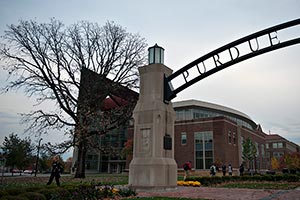Purdue, Penn State Receive Federal Funds for Truck Technology Research

Research projects at two universities designed to enhance truck platooning and improve maintenance of exhaust aftertreatment systems for trucks received $8 million in federal backing, the Department of Energy announced Nov. 2.
Purdue University received $5 million and Penn State University-State College received $3 million from a new program in the department’s research division called Next-Generation Energy Technologies for Connected and Autonomous On-Road Vehicles, or NextCar.
The program aims to reduce vehicle energy use by 20% primarily through connected and automated vehicle technologies.
At Purdue, researchers will study transmission and engine optimization, cloud-based remote engine and transmission recalibration, and efficient truck platooning. The strategy that produces the most results will be evaluated and refined using a phased approach.
AUTONOMOUS AUTUMN: Recent video coverage of autonomous vehicle developments
At Penn State, researchers will look to develop communications that would anticipate traffic congestion and signals. They also will enhance truck platooning and coordinated intersection arrival and departures, and optimize vehicle routing and speed trajectories.
“Today, cars and trucks are increasingly being outfitted with new technology that provides information about the vehicle’s environment, mostly to make them safer and to help drivers with basic tasks,” said Ellen Williams, director of the Energy Department’s Advanced Research Projects Agency-Energy, which oversees NextCar. “As our vehicles become creators and consumers of more and more data, we have a transformative opportunity to put that new information to the additional use of saving energy in our road transportation system.”

